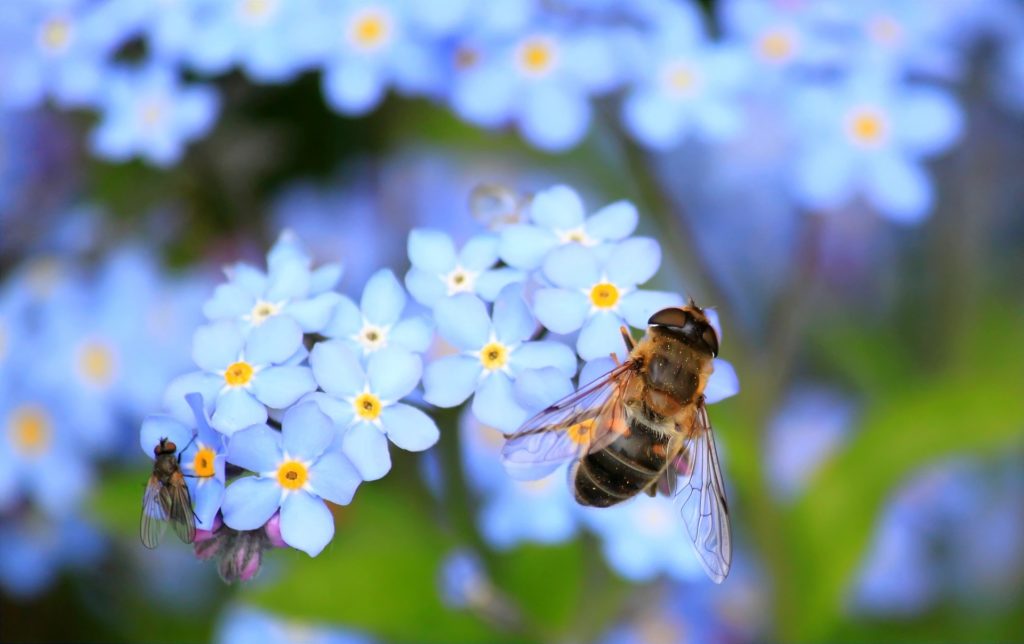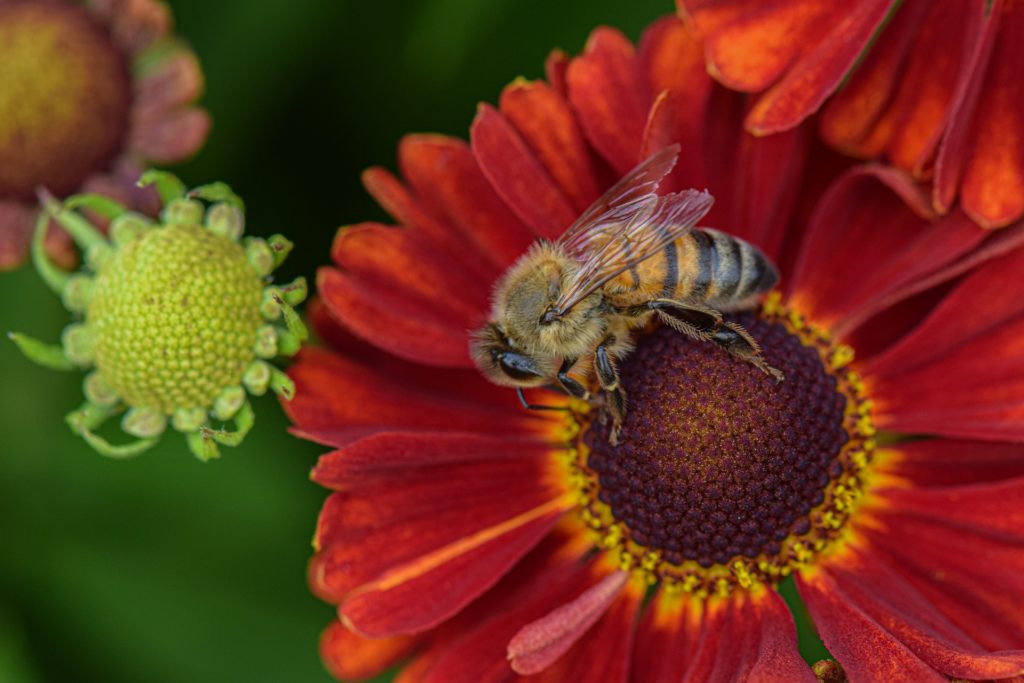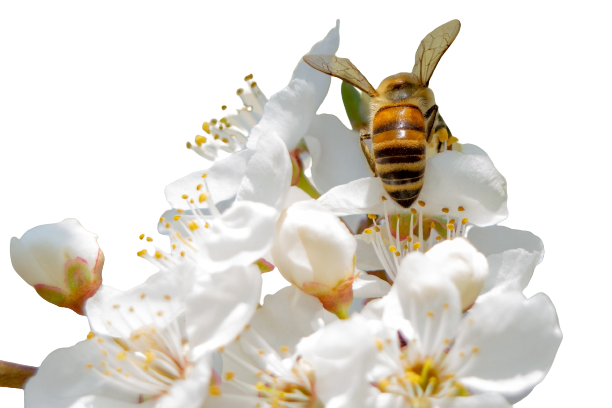Since the 19th century, we have been shaped by apicultural education based on assumptions and a trade that disregards the lives and well-being of bees. It is high time for beekeeping to undergo a major transformation and embrace a love for bees.
It is crucial to learn how to listen to bees, understand them, respect them, and work alongside them. Schools need to revise their perception of bees and adopt a different approach to teaching. Classifying bees as Hymenoptera and the colony as a society in which bees work, as is done in university education in entomology or biology, is too formal an approach. Doesn’t addressing bees and studying them almost exclusively as insects, without considering the colony animal on which they are completely dependent, reveal a certain narrow-mindedness? Doesn’t this approach simply stem from an anthropomorphic projection carried by self-centered humans for centuries?
We are beginning to understand other concepts in our perception of the animal world, as equine ethology does so well by respecting horses in their true essence. It teaches us to free ourselves from the constraints of military horsemanship and allows us to envision new perspectives infused with love.
What if we considered the colony as a single organism, a complete animal?
What if the bee was just a detached cell of this whole? When new cells are born in our bodies, are they aware of the entire body and the being into which they have just arrived? Are they aware of the very thoughts we convey at the moment of their birth? Will they be imbued with them? Don’t they immediately start « working » like a bee does so well? There are about 4 minutes between the end of its birth and the beginning of its actions for the community. What kind of schooling did the bee undergo in those few minutes to know everything it needs to do?
What if ethology was the true path that beekeeping should follow?
What if we moved beyond the enslavement of bees caused by brutal breeding practices?
What if we started by establishing beekeeping rules that serve the bees instead of the other way around?
Let’s begin by respecting local subspecies and putting an end to the genetic drift to which we subject them through astonishing practices. It took between 3 and 5 million years for a harmonious relationship to form between an ecosystem and a native subspecies.
It is crucial to learn how to listen to bees, understand them, respect them, and work alongside them. Schools need to revise their perception of bees and adopt a different approach to teaching. Classifying bees as Hymenoptera and the colony as a society in which bees work, as is done in university education in entomology or biology, is too formal an approach. Doesn’t addressing bees and studying them almost exclusively as insects, without considering the colony animal on which they are completely dependent, reveal a certain narrow-mindedness? Doesn’t this approach simply stem from an anthropomorphic projection carried by self-centered humans for centuries?
We are beginning to understand other concepts in our perception of the animal world, as equine ethology does so well by respecting horses in their true essence. It teaches us to free ourselves from the constraints of military horsemanship and allows us to envision new perspectives infused with love.
What if we considered the colony as a single organism, a complete animal?
What if the bee was just a detached cell of this whole? When new cells are born in our bodies, are they aware of the entire body and the being into which they have just arrived? Are they aware of the very thoughts we convey at the moment of their birth? Will they be imbued with them? Don’t they immediately start « working » like a bee does so well? There are about 4 minutes between the end of its birth and the beginning of its actions for the community. What kind of schooling did the bee undergo in those few minutes to know everything it needs to do?
What if ethology was the true path that beekeeping should follow?
What if we moved beyond the enslavement of bees caused by brutal breeding practices?
What if we started by establishing beekeeping rules that serve the bees instead of the other way around?
Let’s begin by respecting local subspecies and putting an end to the genetic drift to which we subject them through astonishing practices. It took between 3 and 5 million years for a harmonious relationship to form between an ecosystem and a native subspecies.

For example: Is it respectful, responsible, and morally acceptable to practice beekeeping that prides itself on producing queens in the Caucasus, then sends them via express mail services to a laboratory in Germany for artificial insemination, and then sends them back, again by the same means of transport, to orphaned colonies in Chile so that this « queen » can lay eggs and increase the population to make them « Caucasian »? This is the current trend. They will eventually be sold to beekeepers in the United States or Canada, who, incidentally, complain of high mortality rates—all of this, of course, in the name of high scientific beekeeping expertise and modern agronomy. All at the expense of our beautiful pollinators and, more broadly, nature and life itself.
What about the indigenous subspecies in Chile, which are not Apis?
What about the endemic plants that were once pollinated and now depend solely on their local insects, accustomed as they are to the attraction processes established by these plants—a true symbiosis developed over millions of years? The olfactory sensors in their antennae, tongue length, attractiveness, and digestibility of pollen are all elements that native bees have developed over time and cannot be changed in a matter of decades.
It is time to revolutionize our approach to beekeeping. We must implement respectful, sustainable, and ethical practices. We must commit to preserving bee diversity, respecting their natural habitats even when we place them in hives, and promoting their conservation in ecosystems. Only through fair and caring beekeeping can we ensure a healthy and flourishing future for bees and our entire planetary ecosystem.
This requires a profound change in our thinking and actions. It is essential to recognize that bees are not mere production instruments but living beings with their own intelligence, harmony, and needs. They deserve our respect and consideration. Their DNA has existed on Earth for much longer than ours…
First and foremost, it is imperative to promote native subspecies. Each region has its own indigenous bees, perfectly adapted to their specific environment. These bees are guardians of local ecological balances, ensuring the pollination of endemic plants and contributing to biodiversity. They can forage on up to 300 melliferous or polliniferous plants in their areas, while imported bees recognize only about a hundred plants. What about the remaining 200 that are not fertilized?
We must stop prioritizing species from elsewhere and intensive breeding practices that harm plant genetic diversity and weaken local populations.
Let’s consider another example: There are three subspecies (to our knowledge) of Apis ligustica in Italy, which are also in vogue: those from the north, center, and south of the country, to simplify matters. Breeders from the south offer early each spring beautifully developed colonies because there is no need for wintering in the southern part of the peninsula.
What about the indigenous subspecies in Chile, which are not Apis?
What about the endemic plants that were once pollinated and now depend solely on their local insects, accustomed as they are to the attraction processes established by these plants—a true symbiosis developed over millions of years? The olfactory sensors in their antennae, tongue length, attractiveness, and digestibility of pollen are all elements that native bees have developed over time and cannot be changed in a matter of decades.
It is time to revolutionize our approach to beekeeping. We must implement respectful, sustainable, and ethical practices. We must commit to preserving bee diversity, respecting their natural habitats even when we place them in hives, and promoting their conservation in ecosystems. Only through fair and caring beekeeping can we ensure a healthy and flourishing future for bees and our entire planetary ecosystem.
This requires a profound change in our thinking and actions. It is essential to recognize that bees are not mere production instruments but living beings with their own intelligence, harmony, and needs. They deserve our respect and consideration. Their DNA has existed on Earth for much longer than ours…
First and foremost, it is imperative to promote native subspecies. Each region has its own indigenous bees, perfectly adapted to their specific environment. These bees are guardians of local ecological balances, ensuring the pollination of endemic plants and contributing to biodiversity. They can forage on up to 300 melliferous or polliniferous plants in their areas, while imported bees recognize only about a hundred plants. What about the remaining 200 that are not fertilized?
We must stop prioritizing species from elsewhere and intensive breeding practices that harm plant genetic diversity and weaken local populations.
Let’s consider another example: There are three subspecies (to our knowledge) of Apis ligustica in Italy, which are also in vogue: those from the north, center, and south of the country, to simplify matters. Breeders from the south offer early each spring beautifully developed colonies because there is no need for wintering in the southern part of the peninsula.

Local beekeepers emphasize all the most convoluted commercial criteria to sell them quickly but forget to mention that their beautiful Ligustica bees belong to a subspecies that has genetically lost (or never had) the ability to form a winter cluster. The first harvest of their customers will be magnificent, but the following winter will be much more catastrophic, especially if these dear foragers were delivered to areas prone to freezing temperatures…
Furthermore, we could also reconsider our approach to bee breeding. Instead of considering bees solely as honey producers, we should view them as partners in a complex ecosystem. This means abandoning brutal methods that exploit bees as slaves and favoring practices that respect their well-being. It is possible to ethically harvest honey in fair quantities, taking care not to harm the survival of native colonies, and leaving enough reserves for them to comfortably pass the winter.
Education plays a key role in this transformation. Beekeeping schools and institutions must adopt a new approach, explaining to future beekeepers the importance of ethology and bee preservation. It is essential to develop a deep understanding of their behavior, needs, and relationship with the environment. By raising awareness among aspiring beekeepers about the significance of sustainable and respectful practices, we could shape a new generation of beekeepers who are conscious of their responsibility toward bees and nature as a whole.
We must recognize that beekeeping is much more than just a commercial enterprise. It is a commitment to the preservation of nature and a contribution to food security. It is a true passion. Ethical beekeepers should be encouraged and supported in their efforts to promote fair and respectful beekeeping. This can be achieved by providing financial incentives for sustainable practices, promoting scientific research on native bees and mass selection, and creating knowledge-sharing networks among local beekeepers.
By advocating for fair beekeeping, let us reaffirm our commitment to local subspecies and the environment.
Isn’t it time to take action?
Anyone who cares about biodiversity preservation and building a sustainable future could support this direction.
A true paradigm shift in beekeeping is necessary.
By working together, we can create a world where bees thrive alongside us, where nature is preserved, and where we live in harmony with our ecosystem. It is time to love bees and provide them with the justice they deserve.
Professor Roch Domerego
Furthermore, we could also reconsider our approach to bee breeding. Instead of considering bees solely as honey producers, we should view them as partners in a complex ecosystem. This means abandoning brutal methods that exploit bees as slaves and favoring practices that respect their well-being. It is possible to ethically harvest honey in fair quantities, taking care not to harm the survival of native colonies, and leaving enough reserves for them to comfortably pass the winter.
Education plays a key role in this transformation. Beekeeping schools and institutions must adopt a new approach, explaining to future beekeepers the importance of ethology and bee preservation. It is essential to develop a deep understanding of their behavior, needs, and relationship with the environment. By raising awareness among aspiring beekeepers about the significance of sustainable and respectful practices, we could shape a new generation of beekeepers who are conscious of their responsibility toward bees and nature as a whole.
We must recognize that beekeeping is much more than just a commercial enterprise. It is a commitment to the preservation of nature and a contribution to food security. It is a true passion. Ethical beekeepers should be encouraged and supported in their efforts to promote fair and respectful beekeeping. This can be achieved by providing financial incentives for sustainable practices, promoting scientific research on native bees and mass selection, and creating knowledge-sharing networks among local beekeepers.
By advocating for fair beekeeping, let us reaffirm our commitment to local subspecies and the environment.
Isn’t it time to take action?
Anyone who cares about biodiversity preservation and building a sustainable future could support this direction.
A true paradigm shift in beekeeping is necessary.
By working together, we can create a world where bees thrive alongside us, where nature is preserved, and where we live in harmony with our ecosystem. It is time to love bees and provide them with the justice they deserve.
Professor Roch Domerego

